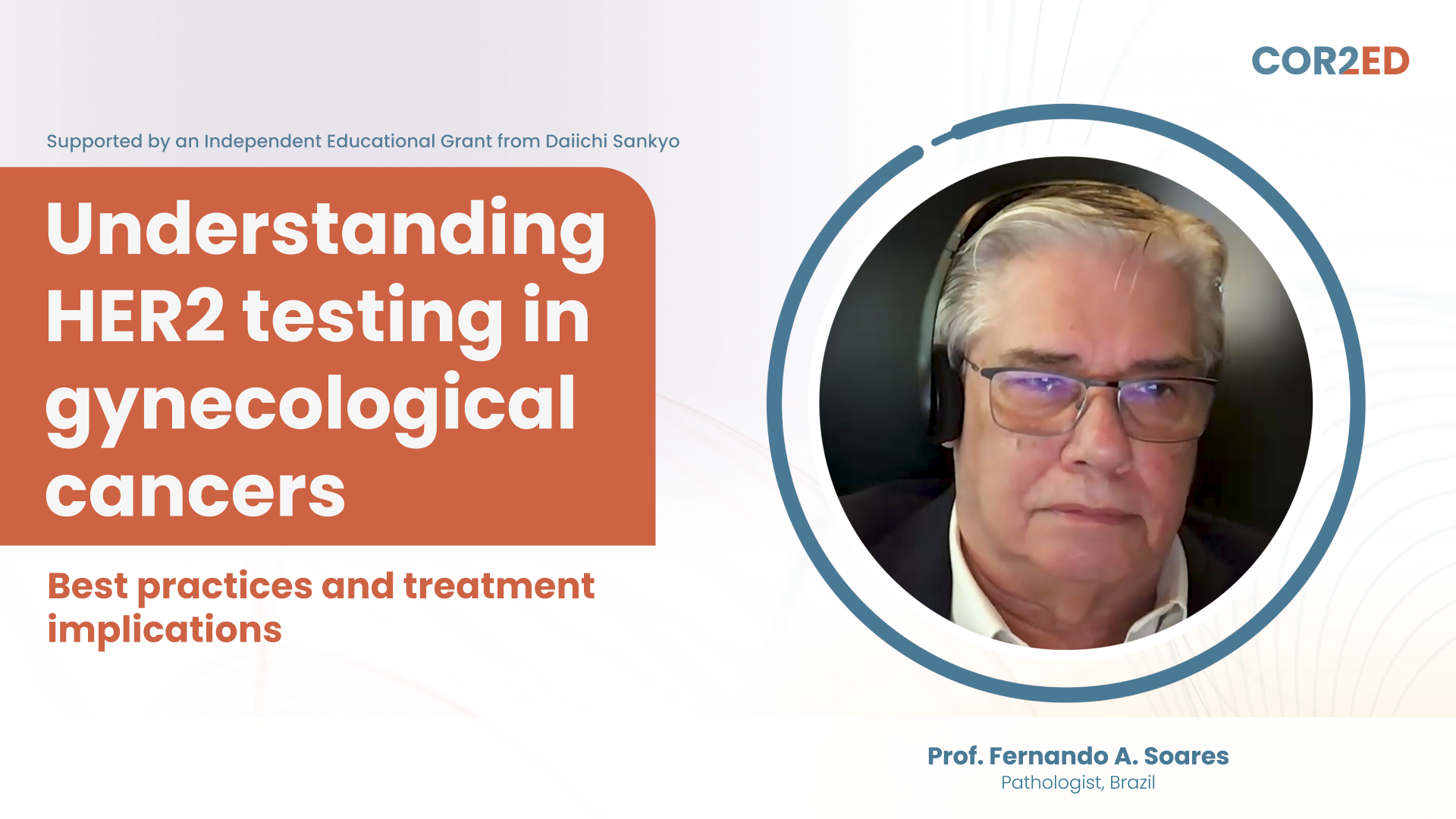Podcast Episode 1: Genetic testing and PARP inhibitors in prostate cancer
Please note: GU NURSES CONNECT podcasts are designed to be heard. If you are able, we encourage you to listen to the audio, which includes emotion and emphasis that is not so easily understood from the words on the page. Transcripts are edited for readability. Please check the corresponding audio before quoting in print.
This GU NURSES CONNECT programme is supported through an independent educational grant from AstraZeneca. GU NURSES CONNECT is an initiative of COR2ED.
The views expressed within this podcast are the personal opinions of the authors. They do not necessarily represent the views of the author’s academic institution, or the rest of the GU NURSES CONNECT group.
Joanne Chien: Hello, and welcome to the first podcast in the series covering PARP inhibitors in prostate cancer. Today's podcast will cover genetic testing and PARP inhibitors in prostate cancer. I am Joanne Chien, a nurse practitioner specialising in medical urologic oncology at Stanford Healthcare in California, USA. I'm also a member of GU NURSES CONNECT. I'm so delighted to be joined today by Dr Alex Wyatt. Welcome Alex, perhaps you would like to introduce yourself?
Alex Wyatt: Thanks very much, Joanne. I'm Alex Wyatt. I work in Canada at the University of British Columbia, and I have a research group that studies prostate cancer and bladder cancer genomics, and I'm an Assistant Professor within the Faculty of Medicine at the University of British Columbia.
Joanne Chien: Thank you. So today we are going to discuss genetic testing in prostate cancer patients. We will cover why genetic testing should be performed. Who should get testing, how to test and what this means in relation to treatment with PARP inhibitors. So, Alex, perhaps you could start by giving us some background about gene alterations in prostate cancer and why we should consider genetic testing when thinking about treatment options such as PARP inhibitors?
Alex Wyatt: Absolutely. You know, the field of prostate cancer research was changed quite drastically almost a decade ago now with the discovery that when we look at patients’ tumours in the advanced settings, so cancer that spread around the body or it's very, very aggressive, we find that about maybe even a quarter of patients have defects in their tumour in what we call DNA repair genes.
So, it's the genes that repair the DNA of the cancer, and they're actually defective. And so, this is actually a therapeutic vulnerability because your cells have many ways to repair DNA damage. But if they have a defect in a gene that is supposed to do that, then they end up relying on other pathways to get their DNA repaired. And so what we can do is try to inhibit those other pathways and you sort of cause catastrophic stress to those cancer cells and whereas your normal cells in your body are not inhibited in such a way.
So that's where the concept of PARP inhibitors come in because PARP is part of one of those other DNA repair pathways the cancer uses to compensate when it has these defects. So, what we do is we try to inhibit PARP and it causes what's known as synthetic lethality. So, it's basically like a unique vulnerability within those cancer cells that are much more reliant on part as a DNA repair gene than other cells in your body.
So, when we look in advance prostate cancer, there's actually up to a quarter of patients that have defects in some sort of DNA repair gene. Now, that doesn't all mean they're vulnerable to PARP inhibitors, but a subset of those are, and it's about 10, perhaps 20 percent of patients that have defects that could confer sensitivity to PARP inhibitors. Now, as you can appreciate, if there's a lot of different genes contributing to DNA repair in a cancer cell, they don't all behave in exactly the same way. And so, predicting exactly which gene responds best is not totally figured out yet, but we know the most common gene is one called BRCA2.
And because that's where in clinical trials, we've seen perhaps the strongest evidence of benefit, the strongest responses to treatment. But there are many other genes that are mutated in prostate cancer, particularly in DNA damage repair pathways and some of these genes do have some suggestion of benefit in the context of a PARP inhibitor and particularly for olaparib in the US, where there is actually a broader label than in other jurisdictions, in the US that includes 14 genes so it’s important to be aware of some of these other DNA repair defects, some of these other genes. So of course, there’s BRCA1 in addition to BRCA2.
But there's also other genes such as ATM, CDK12, CHEK2 known as ‘chek two’ and a sort of you can think of it as we often describe a long tail of these rarer alterations that you may only see in 1 in 100 or 1 in 200 individuals, but they're still important and they can still drive cancers, cause new ones in family members. They can still mean that a patient has aggressive disease, and they may still confer sensitivity to PARP inhibitors. And it's a big area of research at the moment to try to define exactly which of those rarer alterations are most relevant, not just for PARP inhibitor treatment, but also for germline screening risk in family members.
So, it is important to think not just about those most common genes, but also those rarer ones. One note, I would add is that, you know, there are a lot of genes involved in DNA repair and they don't all necessarily have that same exact effect as causing sensitivity to a PARP inhibitor. So, in future, there may be other treatments that we have that can exploit different types of DNA repair defects. So even if a DNA repair gene mutation is not specifically relevant for a PARP inhibitor, we're probably still going to want to know about it in future. So, you know, I think we should be testing for a large number of genes.
We only really use PARP inhibitors at the moment in the late-stage setting, so that's patients that are already resistant to other treatments. Normally hormone therapy and sometimes chemotherapy as well.
But there are multiple PARP inhibitors that are either approved in various jurisdictions or they've shown benefit in phase 2 or phase 3 trials. And so that includes olaparib, rucaparib, niraparib, talazoparib. And of course, there are others in development. It's a very exciting area of research.
Now, both olaparib and, rucaparib, which are approved in sort of late-stage setting after a line or two of other treatments, they don't have exactly the same indication in terms of what genes they would be relevant for. And it can vary from jurisdiction to jurisdiction. So, for example, in the US, there's actually a number of different genes for which olaparib would be potentially indicated for, whereas in other jurisdictions (postproduction edit) it would be a smaller subset.
Joanne Chien: Great. Thank you so much for providing that background, Alex. And we often hear the term genetic testing, genomic testing and next-generation sequencing, which we sometimes use interchangeably. So, do you think these tests all provide the same efficacy or do they work about the same effectively?
Alex Wyatt: Yeah, it's actually a bit of a challenge in our field. I think because things evolve so rapidly and testing improves so quickly that we use these terms interchangeably. So, I myself are guilty of saying genetic or genomic or sequencing, and I think it's legitimately confusing I think even for people that are right at the cutting edge. Historically, when we say genetic, we're talking about germline testing. That's the mutations that are inherited.
But, you know, I think the line gets blurred now. In general, I would treat genomic as being a kind of broader thing, and next-generation sequencing is really the technology itself rather than what you're actually testing. Ultimately, these really are all the same things. It's about looking at the DNA in the cancer, looking at the genes and seeing whether they're different, whether they've got mutations in them. And so, they’re all kind of getting it the same concept, the same a general type of test.
Joanne Chien: So, Alex, you've mentioned somatic and germline mutations. Could you perhaps explain what these are and the types of genomic testing that can be used to detect the gene alterations?
Alex Wyatt: Yes, absolutely. So, there are two classes of mutations as you mentioned, we talk about germline mutations and we talk about somatic mutations, and it is important to know the difference between these two. So, a germline mutation is something that's inherited from one of your parents and is present in all the cells in your body, whereas a somatic mutation is something that's acquired only by the cancer, so the rest of the cells in your body don't carry it. So, if we look at a piece of cancer tissue, so if we have a biopsy, it's cancer tissue, we could see both types of those mutations because the inherited ones are in all the cells in your body, including the cancer cells and of course, the cancer only ones are there, too, so we can see both. Whereas if we're looking for the germline mutations, we can really test anything from your body. Most commonly, we would use saliva or cheek swab, sometimes a blood test, and they would tell us about the germline mutations that are inherited.
And so broadly speaking, those are the two types of tests that come out right? So, we can look just at your blood or saliva sample, and we could see those germline mutations, or I think ideally we'd look at a piece of cancer tissue and then we'd get both of those mutations, the somatic and the germline.
Joanne Chien: Great. Thanks, Alex. And for which patients should we perform somatic testing, such as tissue biopsy from the prostate tumour or germline testing?
Alex Wyatt: So, I would say that the guidelines on who to test and when to test are updated every year at the moment.
So, there are multiple different guidelines. And so, if you're in Europe, for example, you would probably be relying on ESMO and EAU guidelines. If you're in the US, you'd be looking at NCCN guidelines and different jurisdictions rely on different ones. But all of these different guidelines do recommend testing in one form or another. They may differ slightly in terms of the precise clinical circumstance. So, for example, the NCCN guidelines recommend testing quite early even in the setting of localised prostate cancer, whereas the European guidelines that ESMO and EAU maybe, you know, recommend testing at a slightly later stage when the cancer is a little bit more advanced, but they're updating every year. So, really make sure you check back every year to see just how early they're recommending testing.
What I think the guidelines lack clarity on and where we need to come to a better consensus is exactly what type of tests should be performed.
And, you know, whether that is just looking at the germline mutations or whether it's looking at both types of somatic and the germline. My, feeling is that we should be testing for both types of mutations in any patient with aggressive disease, so that includes high-risk localised disease. Historically as well, we, have this preconception really, that it was only patients with family history of cancers that would be at risk for germline mutation. So, if you had a mum or a dad who had breast cancer or prostate cancer, respectively, then we'd say, OK, you're at risk for germline mutation. We need to test you. What we've realised, though, more recently, is that is actually not a very good predictor of which men have germline prostate cancer mutations.
So, we're really trying to move away from restricting testing just to those people with family histories of cancer and be much more inclusive of people with aggressive prostate cancer in general. The other thing to think about is, you know, do we do both types of tests? What if you've already done a germline test? Should you still do a tissue test afterwards? Because I think more and more patients are actually going to have had germline testing done through one source or another. So, you know, remember that if you have done germline testing and you didn't find anything, that doesn't mean that the tumour hasn't acquired one of these mutations separately. And so, we would still need to test the tumour.
What I would say is, conversely, though, if we have tested the tumour and we didn't find anything, then that probably means the germline is normal as well because the germline mutation should be present in the cancer. One sort of nuance to that is that germline panels can be much bigger than tissue panels, so they can look at more genes. So, I think as time goes on, we need to be really aware of the methods that are actually being tested. But I think maybe that's a conversation for another day.
Joanne Chien: That sounds good.
Alex Wyatt: So, you know, we've talked a lot about carrying out germline testing, Joanne, but obviously if we have a positive or a negative result, that has significant implications for the patients, of course, in terms of therapy choices, because it renders one eligible or ineligible for a PARP inhibitor, but also for patient families in terms of risk management or, you know, development of other cancers.
So maybe you could elaborate on how you support patients with genetic counselling before they get tested. What type of questions a patient might have and also what happens if you find a positive result?
Joanne Chien: Yes, that's a great question. Nurses and nurse practitioners would definitely play an integral role in collaboration with the treating physicians to help support our patients and their families during this difficult and emotional time with their cancer diagnosis.
And we definitely take a comprehensive personal and family history at a time of their initial diagnosis, and often we partake the pre-test counselling before even referring them to a genetic counsellor, which sometimes may take a while to get scheduled due to shortage of genetic counsellors. And we would also discuss the possibility of an inherited cancer syndrome.
We would explain the cascade testing, which is also important for their family members, and that there might be options to reduce the risk of cancer in their family members in terms of early screening or preventative measures.
Although the tests may not be 100 percent sensitive but is capable of finding genetic mutations that may provide guidance for future treatment options such as PARP inhibitors or clinical trials, and the test results may have many different possibilities. For example, the test may show negative mutations, abnormal mutations, or VUS, which is variant of unknown significance, particularly for patients with the result of any VUS, it is imperative to refer them to genetic counselling for further follow-up, because even though a VUS may not be an actionable mutation at this time, it could evolve over time when new information is discovered in the future.
And actually, most patients are open and receptive to genetic testing. However, they may have a lot of questions, such as how soon they should get their children tested, how should they advise their family members about this? What different types of testing are out there, such as blood or saliva. The cost of the test or insurance coverage, therefore, is always a good idea to have the partnership with the genetic counsellor to help address their questions. However, some patients prefer to focus on their immediate cancer treatment to be their priority, and they don't see that the genomic testing is actually that urgent. Therefore, the providers and nurses would have to continue following up with this patient and hope that they will get tested in the near future.
So, what do you think of this and how would you advise this patient?
Alex Wyatt: You know, I think historically it was true that maybe if we're testing the germline, it isn't super urgent because we didn't used to have treatments available to exploit these mutations. Of course, now we do. So, there is actually an urgency for those patients because it's important to know as early as possible whether you're eligible for a specific class of treatment that that could help you live longer. Personally, I still believe there should have been urgency anyway because many men have daughters in their 20s and 30s who if they carry these mutations as well, they're at risk for breast and ovarian cancer. So, you know, generally this testing is still important for all patients, and I think we should consider it urgent in all scenarios actually.
I would like to pick up a couple of points that you made. So you talked about, you know, partnership with genetic counsellors. But you also mentioned that the waitlists are really long, which does seem to be a universal problem at the moment for prostate cancer. So, you know, you talked about nurses taking an increasing role in pre-test counselling. I would ask like, do you think that there training is available for that? Are there resources people can look at? And also, can we learn anything from our colleagues working on breast and ovarian cancer.
Joanne Chien: Yes. So, there could be a long wait time for patients to be seen in the genetic clinic due to shortage of trained genetic counsellors, so nurses as part of the health care team will have to take a more collaborative approach with the treating physician to perform pre-test counselling, consenting, arranging genetic testing and even post-test counselling to interpret the results for the patients.
The training actually comes as part of the job we do on a daily basis and by getting in services from our genetic counsellors.
And as awareness of genetic and genomic testing is increasing, we are also looking to incorporate this training as part of the nursing curriculum and competencies to help prepare ourselves and to help our patients on this topic. The key is to streamline the process efficiently and effectively and to make sure those high-risk patients have access to the genetic counsellors as a priority. Of course, nurses may have a greater role in supporting and educating the patients at each point of care to help answer the questions and concerns as they arise.
Nurses and nurse practitioners can also help direct patients to online resources, including videos and podcasts, as we know that these learning tools are growing and becoming more and more available over time.
Alex Wyatt: Yeah, I think you know, we are seeing this general trend across all oncology in terms of, you know, multidisciplinary and collaboration within the clinic. So, it's no longer a case where just, you know, there's one individual can make all decisions.
It's such a, you know, we need everybody working together and have to accept nobody knows everything. So as somebody working on the genomics side, I'm so blind to many of the clinical issues that sort of you see day in, day out and so kind of leaning on each other, I think is so important and being open to asking for help. So, you know, somebody like you knows so much about this, but I think colleagues around you may not.
Joanne Chien: Yeah, I totally agree. I totally agree. I think that's a collaborative approach, you know, and ongoing, you know, to help those patients in a long way in the long run, in terms of, you know, a prostate cancer treatment.
So at what point should we be performing those genetic testing on our prostate cancer patients? And how often during the spectrum of their disease should this be performed?
Alex Wyatt: Yeah, I get this question quite a lot actually, partly because PARP inhibitors have brought quite a lot of hope to the clinic.
So, there's a hope both from patients and on the medical side that, oh, maybe now my patients developed a mutation and now they'll be eligible for a PARP inhibitor.
So, I actually think it's kind of a good news, bad news situation. In a way, bad news is that if you test negative early on, you're probably not going to convert to a positive. But actually, I see this as good news. It's essentially these mutations arise very early in disease development. So, kind of when that cancer is just beginning, these mutations are laid down. So, it means that they're present in all the ancestors of that cancer as it spreads around the body, if it does spread around the body, it's still carrying those mutations. So, we can test quite early or we can test tissue that was collected quite early, and it tells us about the late-stage disease as well.
And so, what this means is that we can use biopsy tissue from a long time ago or we can use a new biopsy tissue. We, you know, we can kind of, we have multiple testing modalities at our fingertips. In terms of when we should be applying this, as we discussed earlier, the guidelines recommend as early testing as possible, but of course we're kind of implementing this now, and there's many patients who have already progressed to late-stage disease right now in the clinic. So ultimately, if you have a patient that is potentially eligible for a PARP inhibitor, of course we should be testing them even if they don't have early-stage disease anymore. And you know, as we mentioned earlier on, about 10 to 20 percent of those are going to harbour a mutation in a DNA repair gene. Not all of those are going to be eligible for a PARP inhibitor, but many of them will still be important for understanding the clinical trajectory of their disease or risk for family members and so forth.
Joanne Chien: That's very interesting, Alex. So, can you explain why we sometimes see the discrepancies between the liquid and tumour biopsy results?
Alex Wyatt: Yeah, absolutely.
I can talk about this because, you know, I just mentioned these mutations should be seen early, they should be seen late and it doesn't matter. But actually, the feedback I get is, oh, you know, we took two different samples from a patient and they showed a different result. And that can be confusing. It's important to remember that we sometimes test different things. So, in the US in particular, we have access to what's known as liquid biopsy testing, and that's looking at the cancer DNA that's in the bloodstream.
And so sometimes there isn't actually any cancer DNA in the bloodstream. So, when we do that test, we’re really not actually testing the cancer. And so, you kind of don't get any results back and people can see, you know, not necessarily understand that nuance and interpret that test wrongly. When we do tissue biopsy testing so, we take a piece of a cancer tissue out, whether that's with a biopsy or surgery, the first thing we do is have a pathologist look down the microscope and check that there's cancer there, right? And so, we all feel really comfortable saying, Oh, we missed the lesion, we missed the cancer in this patient or there's not enough cancer cells, so we shouldn't do testing on this sample.
But if we take a liquid biopsy, if we take a blood sample to look at the cancer DNA, we don't have that pathologist to go look down the microscope and tell us whether there’s cancerous DNA present or not. You can't see that type of thing with a microscope.
So, we do the test regardless. And that's why there may be discrepant results between tissue and liquid biopsies as people are doing these kinds of things sequentially. It's because we may not be testing cancer in those liquid biopsies. Ultimately, I think the important thing to remember is that it's not about whether the mutations are changing within a patient. It's that the test is not informing you about the right thing, in a way that sample is actually failing.
Joanne Chien: Yeah, great. Great point. So, can you perhaps advise which samples are the best to obtain for the genetic testing? For example, we know that it’s often difficult to perform a bone biopsy or get a sufficient sample in patients with bone metastases.
Alex Wyatt: Yeah, it’s a big issue in prostate cancer in terms of what sample is best for testing. So, you know, we look at other cancers, particularly breast and ovarian, where tumour tissue testing is more routine. And we think, well, why can’t we just do this in prostate? There are a few reasons that’s problematic. As you mentioned, when a patient with advanced cancer, most of the metastases are within the bone or they’re within kind of inaccessible lymph nodes or so forth around the body. And so, bone is difficult to biopsy. And it also, you know, it's not a comfortable process for a patient to go through, and those inaccessible lesions, those inaccessible lymph nodes are by definition, inaccessible, so it's not actually always feasible to do a metastatic biopsy, a fresh biopsy to get a new piece of tissue. In fact, outside of specialised centres, it's actually really rare.
So, what we rely on is the cancerous tissue that was obtained when the person was first diagnosed with prostate cancer.
And for most patients, that's like a needle biopsy into the prostate. So, it's actually a small piece of tissue. It's often quite old, and it's stored in wax blocks, sometimes in a warehouse or hospital drawer or something. So, you can appreciate just from that description why that does not always give good results, interpretable results.
Now, most patients can still have their cancer DNA repair genes checked using that approach. But it's, you know, tissue is not always available, you can't always even retrieve it, particularly if the patient has been referred between multiple centres. And even when we do, sometimes that fails because it is very old and not of good enough quality. So, what I think, you know, if you've got a patient sitting in front of you and you're wondering how to test their cancer, the first thing to try is to look and see if they have tissue available previously so that diagnostic biopsy and whether you can retrieve that. And so, if you can't retrieve it or it fails, it's not good enough quality, then you can think about other options, like trying to get a bone biopsy. But of course, the other option is the liquid biopsy, as we discussed before. So that is an emerging technology. So, what I mean by that is, you know, the methods of testing are fairly new and you know interpretation is ongoing, but it can still find these mutations in a large proportion of the men that have them. So, it's a really good backup to have if that option is available to you.
And finally, I would say, if you know tissue testing can’t work, if liquid biopsy testing isn't informative, you can still do germline testing. So that's always available to you. And as a minimum, we should be doing that.
Joanne Chien: That's great. Wonderful. I totally agree. I feel like it's a game-changer if we find a place that can get a biopsy and actually find those mutations to open some options for patients.
So, there are a number of ongoing trials looking at PARP inhibitors in prostate cancer, including PARP inhibitors in combination with immunotherapies or androgen receptor pathway inhibitors. Some of these trials involve a broader set of patients. Do you see these trials changing the need for genetic testing in the future?
Alex Wyatt: Yes, so whenever we have new, exciting drugs like PARP inhibitors, there is a desire to try to find a way to make them applicable to as many patients as possible. So, there are trials at the moment that are trying to combine PARP inhibitors with other treatments that we know are effective and try to see if there's a combinatorial effect that we could apply them to all patients. Now, as we're talking right now, those trials have not reported, so we don't know what the results are going to be. But I think what we need to consider is that those patients that get the most benefit at the moment are still those patients with DNA repair defects. And so, you know, the need to test, the need to screen is not going to disappear. And of course, we will always need to identify those germline mutations anyway.
The other thing to remember is that any combination, any treatment combination, can have increased toxicity to the patient. And so, it may not be applicable to all patients anyway. So, I think, you know, we keep watching how the landscape evolves. The treatment landscape is always going to change, especially now we have such rapid clinical research. But testing is going to remain critical for prostate cancer because we know there are these subset that have exquisite sensitivity to PARP inhibitors and potentially other emerging treatments.
Joanne Chien: Sounds like the landscape of treatment is changing but testing still very relevant and is still very needed in those prostate cancer patients. So, thank you so much, Alex, for such a great discussion. What are the key take-home messages for our listeners today?
Alex Wyatt: Thank you, Joanne.
You know, I think there are several key messages. The first is that mutations in DNA repair genes are here in prostate cancer. We didn't used to think they were, but they are, and they're present in sometimes up to a quarter of patients with aggressive disease, with advanced disease. So, because they're there, we need to test for them. We need to find them. And so that means find a way to test a piece of tissue, a piece of cancer tissue, find a way to test the germline. And it's important because if we find these mutations, if we find that a patient harbours these or that cancer harbours these it opens up new treatment options like PARP inhibitors. But it also gives us a chance to find those inherited mutations that may leave family members at risk for other cancers. And so, there's a knock-on effect too, of what we call a cascade effect that it's not about just treating the patient and finding new options for that patient, but it's also about preventing other cancers from arising in family members.
Joanne Chien: Wonderful. Thank you so much again, Alex. And thanks to our listeners. We like to encourage you to tune into the other two podcasts in the series on PARP inhibitors in Prostate Cancer. Thank you so much for your support and listening.
PARP inhibitors in prostate cancer: Management of adverse events and the importance of communication with patients




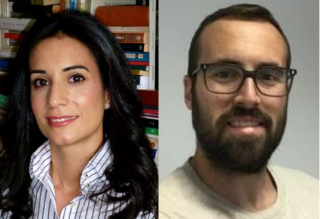
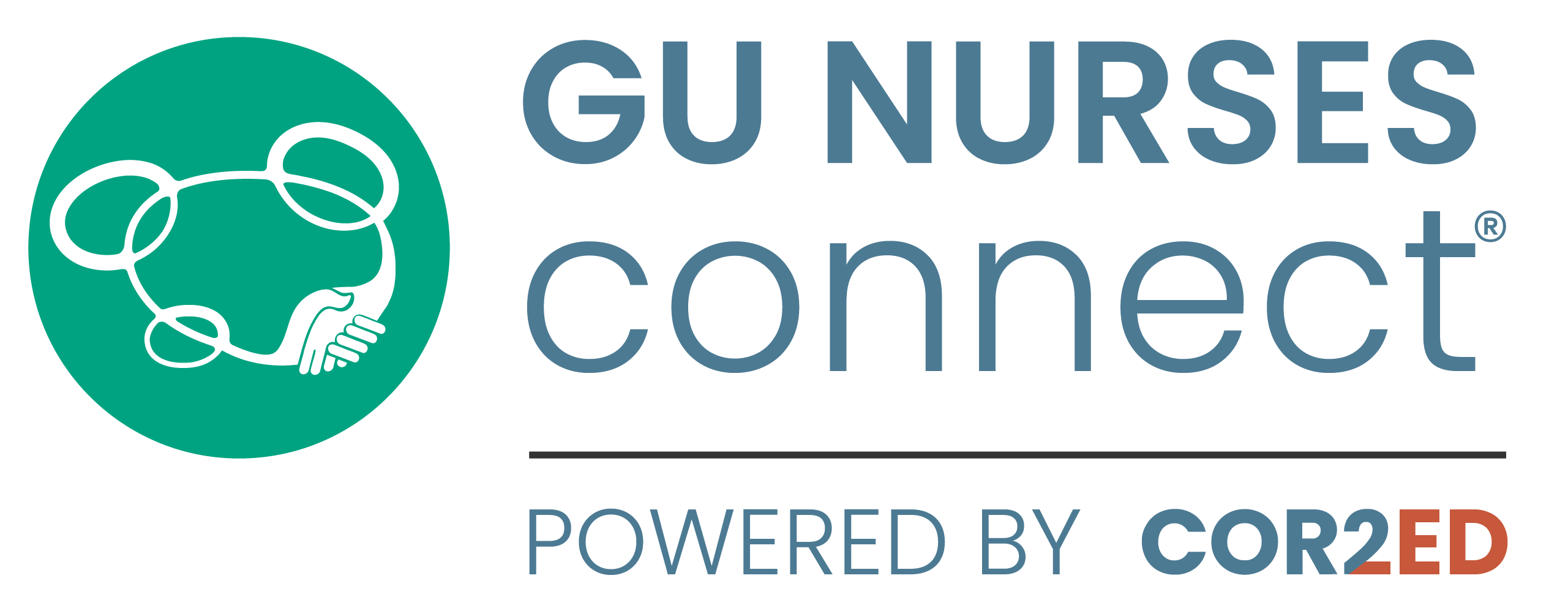



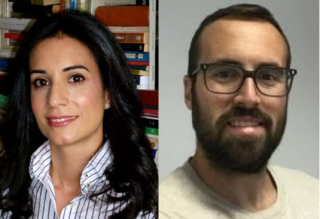
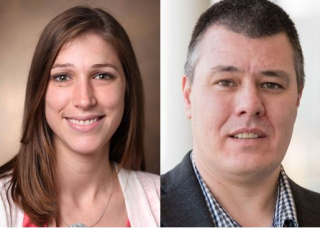



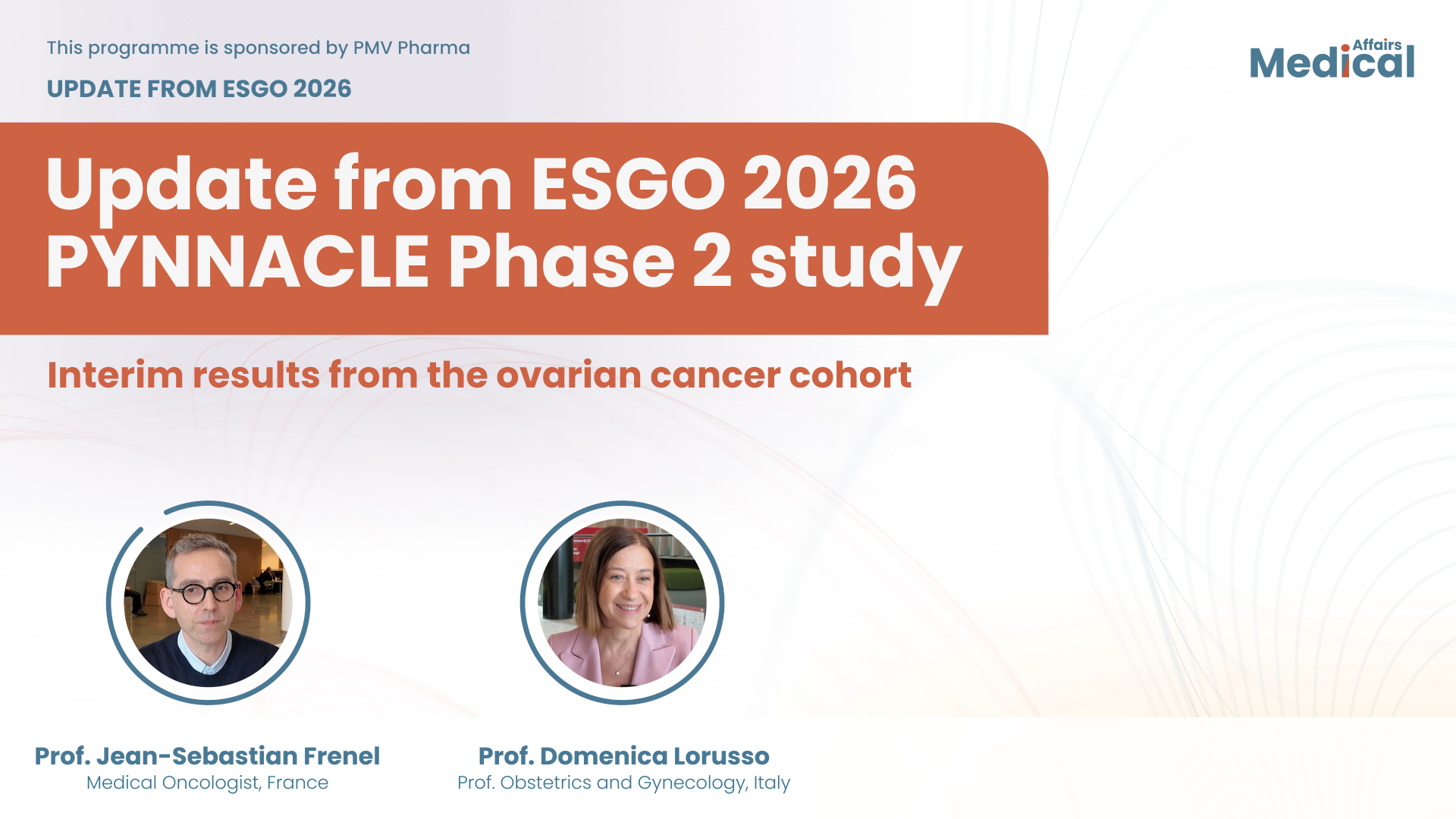
 Downloadable
Downloadable  5 MIN
5 MIN
 Mar 2026
Mar 2026 

